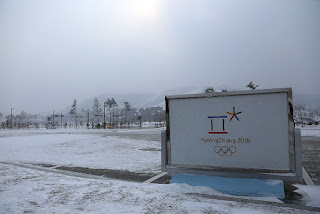2018 Olympics and beyond.
The Rio Games are just wrapping up but it’s never too early to think about where the world will be turning its attention to next, especially since there are less than 18 months until the cauldron is lit in Pyeongchang, South Korea.
The 2018 Games will return to East Asia for the first time since 2008, setting in motion a string of three-straight competitions in the region. Here’s a rundown of the upcoming Olympic locations and how those cities captured hosting rights for the international event.
2018 Winter Olympics: Pyeongchang, South Korea
Following two failed attempts to host the 2010 and 2014 Games, Pyeongchang finally secured South Korea’s first Winter Olympics in history. Seoul previously hosted the Summer Games in 1988.
Pyeongchang was selected as host city in 2011, earning the nod over Munich and Annecy, France, to win the nomination. Preparations are well underway – South Korea broke ground on a high-speed train line from Seoul to Pyeongchang right before the 2012 London Games. The 2013 Special Olympics were also hosted in the city.
With a similar name to Pyongyang – the capital of North Korea – Olympic organizers decided to brand the Games as “PyeongChang 2018” with a capital letter to further distinguish the host city.
2020 Summer Olympics: Tokyo
Tokyo will become the fifth city to host the Summer Games for a second time, with a 56-year gap between 1964 and 2020. The Japanese capital was chosen over Istanbul and Madrid in 2013.
The National Olympic Stadium, built in 1954, was demolished last year – originally in preparation for the 2019 Rugby World Cup and the Olympics. With a delayed timetable, however, the $1 billion project has been pushed back and won’t be ready until after the Rugby World Cup. The venue will seat over 60,000 people for the Games.
2022 Winter Olympics: Beijing
What seemed to be a sure hosting win for Oslo, Norway, took an unexpected turn back in 2014 when the city withdrew its bid because of cost concerns. A year later and Beijing emerged as the narrow victor, edging Almaty, Kazakhstan, by four votes.
The 2022 Games – the third Olympics in a row that will be hosted in East Asia – will be the first winter edition in China. There will be three clusters for competition: Beijing, Yanqing and Zhangjiakou. Travel time from Beijing to Zhangjiakou – a longer trip than to Yanqing – is estimated to take 50 minutes on a new high-speed railway that will allow trains to travel at up to 217 mph.
Beijing most recently hosted the 2008 Summer Olympics, spending $44 billion. The estimated budget of the 2022 Games is $3.9 billion.
China’s Vice Premier Liu Yandong delivers a speech during Beijing’s 2022 Olympic Winter Games bid presentation. (Getty)
2024 Summer Olympics: Budapest, Los Angeles, Paris, or Rome
There’s still an entire year before the 2024 Games are awarded to a host city at the 130th International Olympic Committee Session in September 2017. The bidding process is well underway, though, and the finalists have been winnowed down to four.
Budapest, Hungary, has lost five bids to host the Games in its history, and it appears to be lagging behind the other three cities with greater Olympic resumes. Paris would be looking to host for the first time since 1924, Rome since 1960 and Los Angeles since 1984.
2026 Winter Olympics: TBD
A decade away, plans for the 2026 Games are still up in the air. The organizing city will be selected in 2019, but there are a number of early signs pointing to the possibility of a European host. Options include Austria, Germany, Italy, Sweden and Switzerland, among others.

















No comments: